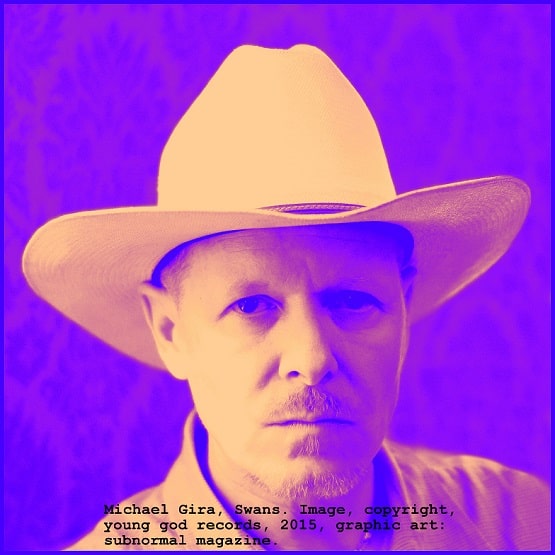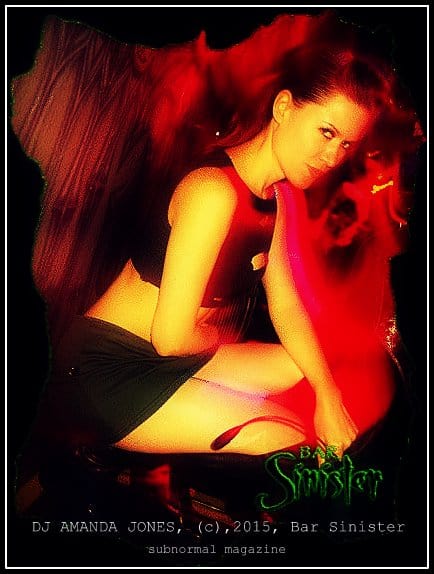
How to Succeed in Hollywood will resume in our next issue. The following list tells how to succeed in the music industry for bands, singers, and musicians, based on over two decades of professional experience working in the music industry, by Bruce Edwin, who has worked in publicity, A&R, tour management, tour booking, road management, band management, sound editing, concert and event production, and more. Bruce Edwin was the manager of David Williams, the guitarist of Michael Jackson, Madonna, Prince, and many others. Bruce Edwin is editor of subnormal magazine, the legendary indie, underground punk music and film magazine distributed world wide in the 90’s by Tower Records.
How to Succeed In the Music Industry
1. Be willing to get an agent, manager, and record label or at least top distributor. If you expect to do it all yourself, you will never grow to the level of a star, because you will be too busy trying to learn a business you don’t know, instead of making music. I will cover how to get signed and how to get an agent or manager in a future issue.
2. Make videos. You should be making videos constantly, and giving away a portion of your music to promote to the fans, and selling the other 75 to 85 percent. Your videos can also be just you and the band hanging out, doing a rehearsal, or discussing life. The key is, you need to promote. Don’t worry about the image or sound quality of the videos at this point. Use your phone if have to and just record and upload, at least once a week if not daily.
3. You need to also promote online on other social media platforms. Try and get a big fan to do this job for you.
4. You need a street team promoter to hit the streets, clubs, stores and more with fliers about your new single or gig, with hard copy fliers.
5. Interact with your fans. Taylor Swift is a pro at this, which has made her fans completely obsessed with her. This is a good thing. You need (healthily) obsessed fans and in order to get that, you need to interact with them.
6. Stop looking like a band. The band that looks like a band in 2015 is passe. Bands that don’t look like bands are more cool than bands that try to look like bands and copy every rock or pop cliche before them. I got an e-mail in this week from a publicist promoting a band whose lead singer has perfectly torn jeans and torn shirt, perfectly off of his shoulder, a can of soda in his hand, and a cigarette dangling from his mouth. Spare me. All that was missing was a bag of potato chips and video game joystick. In an oversaturated lightning fast culture that has seen much of it all, you need to do something different. And if one does not have enough creativity to do that, they should at least quit buying into the lame stereotypes of image and behaviour, and play against the stereotype.
7. Remember people that helped you along the way. If you fail to include people on your guest list that gave you a break, or fail to return emails of people that helped you at the beginning of your career, don’t be surprised if your career doesn’t continue rising as big as you want it to. I know many bands who made it big, but who ended up dissing their fans or the people who helped them along the way, thinking that it was all about them, when they found out the hard way that it was not all about them, it was about what value they brought to others. If you reject even a small group or even just one person who supported and helped you, don’t think that dissing just that one person can’t make a difference to your career. At the very least, if word of mouth spreading around or a powerful person doesn’t bring one back down to reality, one’s guilty conscious often punishes one’s self, and restores the karmic balance for them. I have seen this happen with the some of the most rich and famous people on the planet, and with smaller indie bands, that were on the top of their genre one year, and un-employed nobodies the next, because they were arrogant jerks that thought they could use everyone to get what they wanted, but never paid anything back and never showed any gratitude along the way. Show gratitude, and never forget who helped make you have the opportunity of where you are. Even if you legally don’t owe them anything, have some respect for others. If you don’t, you will surely one day find yourself poorly respected yourself, and not only back at the bottom of the hill, but prevented from even climbing back up it the next time.
8. Think about what your songs communicate and what you communicate as an artist. You are an opinion leader. Do you really want your brothers, sisters, children, family, kids remembering you as the person that bragged about doing a lot of drugs, or who sang about getting high, puking in the toilet, or calling women debased names? If you don’t care today, will you care 10 years from today when your songs are still in the public? Think long term and broadly about the widespread effect your music has and will have on people. What do you want to add to the world? Is your music really benefiting people? If its your form of self therapy, will that outlet help or hinder others? Think about the big picture. Add goodness to the world. There is enough worthless, low value, trash music out there that should be forgotten and often is. Make a positive difference with what you communicate at all levels.
9. Avoid “pay for play” unless you can make a profit. Pay for play is when a venue says that will give you a gig if you sell enough tickets for them. This may seem unfair, that you are doing the venues job for them, but really its not. It is not the clubs job to give you a break or try help make you famous or known. That’s your job. Certainly, some clubs are successful enough that they already have a big enough built in crowd that they are always packed no matter who plays, and they can therefore take a chance on booking new talent. While the days of CBGB’s in NYC and The Gallery in Normal, Illinois are over, there are fortunately, still some clubs that still take chances on new bands. If you are offered bookings that don’t, where you have to pre-sell tickets to get the gig, and you are responsible for the money if you don’t sell the tickets, avoid that scenario unless you can really sell all of the tickets. If you can’t get the amount of tickets sold that a pay to play venue wants from you, then you have one or two problems. Either one, your music and band is not good enough to be marketable and create the demand to get enough fans, or two, you have not promoted yourselves enough, or don’t know how. If the music is lacking, then you need to fix that, fast, which only comes from more and more practice and training. If it is the marketing and promotion that is lacking, then you need to take responsibility for that yourself, or get someone qualified and experienced to help you. If you need help with this, call my office.
10. Be willing to play for free. Be also willing to play for pay. I read a recent blog about how musicians shouldn’t be expected to play for free, because other professionals get paid so musicians should too. This is what we call in philosophy, the bandwagon technique, and does not always match reality. One needs food to survive, and will pay for it. One does not need music to survive (unless you are a fanatic like myself!) and so people pay in accordance to the value that they place on things. Bands that people love the most after that band getting more attention, have a higher value in the marketplace than a more unknown band that might be decent, but is not great. Furthermore, when one is in an area of the arts where the stakes are so high that one can become immensely rich or famous in that area if they excel greatly, then there is greater competition, and more people willing to make more sacrifices in order to make it big. Be willing to play for free—yes, but what I mean by this is, not to sell yourself short, but to love what you do so much that you would do it for free if you had to. Create your music for the love and passion of the music, not for the money. If you create from this passion, then the money will follow. And if you ever do play for free, be sure to stop half way through the set after a particularly great sounding song, and have someone on your team walk around the crowd with a can collecting money, letting the audience know that if what you do has value to them, if what you do is worth as much or even more than a bottle of beer or drink, than to give as much as they can and help you survive, because this is how you make your living or are at least trying to make your living. Don’t be afraid to ask for money on the spot from your audience. Communicate that need, and if you are good enough, and they like you enough, they will pay. You don’t have to wait for the venue or booker to pay you. Earn it from your fans on the spot, and, be sure to not sign any contract stating that you can’t make money from the audience or on your merchandise. So when I say be willing to play for free, be willing to, but also be willing to get paid. And if you are good enough, and ask with enough sincerity and directness, you will get paid.
For more information on the talent manager and to contact Bruce Edwin, visit:www.BruceEdwin.com.
Hollywood Hot Spot

Bar Sinister is without a doubt, one of the best clubs in Los Angeles, where one isn’t subjected to dreadful Top 40, and throngs of jacked up jocks in blue jeans and sneakers. No, Bar Sinister is the place where those types not only would be out of place, they don’t even get through the door typically, with a dress code here that is strictly enforced. Fans of Marilyn Manson, Bauhuas, Siouxsie and the Banshees, Death in June, Nine Inch Nails, Rammstein, Yeah Yeah Yeahs, and the Misfits find this hallowed ground home, and for good reason. Bar Sinister isn’t just about the music, or the look, but like the so called Gothic/Industrial scene itself. It is a lifestyle and state of mind. With one large indoor dance room, sexy go-go girls on dance blocks bumping the night away, and an outdoor dance floor and concert area with a stage for bands, Bar Sinister is one of the best parties in town, again and again. Sexy DJ Amanda Jones reigns the room with pulsing beats of punk, gothic, industrial, acid house, and more; while a recent night Saturday had more dance than anything dark or industrial, it was still fun, and unlike some DJ’s, Amanda knows how to read the rythem of the crowd and keep things jamming. Upstairs is the staple dungeon, where attractive young women and men perform their 50 Shades of Gray scenarios in front of a gazing audience dressed in leather, lace, latex and PVC. The crowd at Bar Sinister, aside from the music and moonlit atmosphere, is the best reason to go. The crowd here ranges from club kids to the weekend revelers, and satisfyingly, they look mostly beautiful. Like this chick in one punk documentary on the 70’s punk scene I once saw stated, “Their look, their outfits, their hair, their make up, is an extension of themselves. They look so sculpted and beautiful.” Indeed. It’s places like Bar Sinister that the fashion industry and filmmakers often use as influence for the next new creation, inspired by such a lovely audience. On this night, I happened to help break up a fight before the bouncer got close enough to throw some jerk out. Energies do run high in clubs in Hollywood, so, bring in some good energy, dress to impress, and be cool. You know we will.
Bar Sinister: 1652 N Cherokee Ave, Los Angeles, CA 90028 10pm – 3am, Saturday nights. – subnormal magazine
Calendar
March
14. Blue Oyster Cult, Saban Theatre
21. David Cassidy, Saban Theatre
Make Peace Day, Peace Museum launch and
peace rally, at 5464 Wilshire Blvd.
24. Gang of Four, Public Access TV, El Rey
Tings Tings, Fonda
April
11. TV Land Awards, Saban Theatre
14. Swans with Angel Olsen, El Rey
17. Pat Benetar and Neil Giraldo, Saban Theatre
30. Artopia, art and music fest, Container Yard, DTLA
May
1. They Might Be Giants, The Regent, DTLA
SWANS
Michael Gira / Swans / Angels of Light: Michael Gira founded the seminal NYC band Swans in 1982. Quickly infamous for their punishing, brutal and repetitive onslaughts of sound, extreme volume levels, and the self-abusing, abject shouts and growls of Gira’s sloganeering vocals, Swans gradually transformed over 15 years, ultimately venturing into harsh mechanical proto-industrial rock, to sprawling shifts of texture and perspective (see the bucolic atmospheric folk idles and martial stomps of their much heralded Children of God double LP from 1987), to gentle acoustic-based songs, and finally on to their ultimate statement, Soundtracks For The Blind (1997) which somehow incorporated all of these elements at once, across well over 2 hours of music in one album. At this point, Gira called it quits after 15 years of relentless touring and productivity, and disbanded Swans.
Since 1999 Gira has released his music under the name Angels Of Light. He writes the songs for Angels Of Light on acoustic guitar and orchestrates them using a shifting cadre of musicians, employing a wide variety of instrumentation such as strings, wind, brass, electric guitars, electronics and choral vocals. The songs are often eccentric and extreme, in keeping with Gira’s love of soundtrack music. Though nominally more traditional than Swans, Angels Of Light is often just as hard hitting through different means. The most recent album by Angels Of Light is We Are Him. When not recording, writing music, or touring, Gira spends his time producing and releasing music through his label Young God Records. He’s been responsible for such notable talents as Devendra Banhart, Lisa Germano, Akron/Family, Larkin Grimm, and James Blackshaw. Recently, Gira decided to Re-activate Swans. Here’s what he has to say about that decision at the YGR website:
“About reconstituting Swans: … there was a point a few years ago during a particular show when I was on tour with Angels Of Light, with Akron/Family serving as the backing band. It was during the song The Provider. Seth’s guitar was sustaining one open chord (very loudly), rising to a peak, then crashing down again in a rhythm that could have been the equivalent of a deep and soulful act of copulation. The whole band swayed with this arc. Really was like riding waves of sound. I thought right then, “You know, Michael, Swans wasn’t so bad after all…” . Ha ha! It brought back – in a flood – memories, or maybe not memories, more a tangible re-emersion in the sensation of Swans music rushing through my body in waves, lifting me up towards what, I can only assume, will be my only experience of heaven. It’s difficult – and probably pointless – to try to describe this experience. It’s ecstatic, I suppose – a force of simultaneous self negation and rebirth. Really, I probably only experienced this a handful of times to such an extreme extent during the entire 15 year history of Swans. All the elements have to align perfectly, and you can’t force it, though you might constantly strive for it. I don’t mean to be too lofty here, but it’s a fact. I’m talking about my own experience of the music (though I’d hope people in the audiences along the way might have experienced a similar episode).
When I ask myself if I believe in God, I start to say NO, but then I remember that sensation, and I’m not so sure. So I want more of that, before my body breaks down to such an extent that it won’t be possible any more. So I’m doing it. Naturally, some of the material for this new record will be songs, centered around the voice and words. Other parts (I’m hoping) will be reaching for what I’ve described above. One thing I want to point out right now: THIS IS NOT A REUNION. It’s not some dumb nostalgia act. It is not repeating the past. After 5 Angels Of Light albums, I needed a way to move FORWARD, in a new direction, and it just so happens that revivifying the idea of Swans is allowing me to do that. I’ll be using what I learned in the last several years to inform the way this new material develops, while carrying forward from where Swans left off with its final album Soundtracks For The Blind, and in particular, Swans Are Dead. If you have expectations about how Swans should be, that’s your business, but it would be a disservice to both of us if I were to make music with your needs in mind, and the music would certainly suffer as a result. In any event, I certainly never thought this day would arrive, but it’s inevitable, it’s here, it’s fate, so I’m succumbing to it.
Helping me in this quest are the fantastic musicians and friends listed below. I’ll enter the studio with the songs, we’ll hash them out together, someone will come up with something unexpected, then that will lead to new ideas, the song will take a different trajectory and the material will grow on its own. This is what I’m hoping, anyway. Here’s the main musicians (though probably a lot of guests on the recording). These are the people best suited – in terms of my relationship with them and their particular musical attributes – to help move the music forward: Michael Gira / guitar / voice / mendicant friar act; (original swans) ; Norman Westberg – guitar; (original swans) ; Christoph Hahn – guitar; (mid period swans and most angels); Phil Puleo – drums, percussion, dulcimer etc etc (final swans tour and most angels); Chris Pravdica – bass and gadgets (flux information sciences / services/ gunga din); Thor Harris – drums, percussion, vibes, dulcimer, curios, keys, etc etc… (angels, now also with Shearwater) … at the time of this writing the album is still in progress. Additional guests so far include Devendra Banhart; Bill Rieflin (drummer for REM) and Grasshopper of Mercury Rev… ” (Content extracted from the El Rey Website, and also ©2015, M. Gira.)
Season of Ghosts just released a new single that has a massive sound and energy, here below:
©2015, The Hollywood Sentinel










